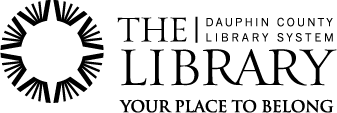As we enter Black History Month, there’s no better time to check out NewsBank’s “Black Life in America” database, available for free through The Library! This collection includes content from over 19,000 American and international news sources, including more than 400 historical and current Black publications. Through the lens of the news media, “Black Life in America” charts the experience and impact of African Americans from the early 18th century to today.
Historical news articles offer a unique opportunity to read about people, topics, and events as they were originally reported. In “Black Life in America,” you can find articles on the Amistad case, see announcements of the 13th Amendment’s ratification, or read coverage of the Selma to Montgomery March, published back when these historical events were brand new news. But it doesn’t stop there – the collection continues up to the present day, with articles on a range of important topics, from Marvel’s groundbreaking “Black Panther” film and the Olympic gold wins of Simone Biles, to the Black Lives Matter movement and the establishment of Juneteenth as a national holiday. Whether you’re working on a project or simply wanting to expand your knowledge, “Black Life in America” offers a wealth of primary sources to reference.
All this is yours to access for free on The Library’s website! Navigate to our Research page and click on “Black Life in America” to jump right into the digital archive. Built-in tools make the database a breeze to search. Click on one of the prepared “Suggested Searches” to browse articles by era and topic. For example, you can click on the era “Antebellum” and choose from a variety of categories, such as “Society and Culture,” “Notable People,” and “Court Decisions.” Clicking on any of the listed topics will launch a specific search prepared in advance for you! For example, click on “Frederick Douglass” (under “Notable People”) to see a range of articles about the orator, writer, and statesman that were published during the mid-1800S.
If you prefer to start your search from scratch, simply type keywords into the database’s main search bar. You can always adjust your search, or any of the Suggested Searches, by changing the date range, keywords, and other details for broader or narrower results. Other options include searching by date or by source location. Click on different areas of the provided interactive map to view news sources from that area of the globe.
“Black Life in America” offers a window into centuries of African American history, culture, and daily life, from the 1700s to today’s breaking news. Check back often as new content is added to the database daily. This February, as we celebrate Black History Month, dig in and start learning. With your Dauphin County Library System membership, this rich database of primary sources is yours to explore!
